Comprehensive Guide to Copier Lease Termination Clauses
Understanding copier lease termination clauses is crucial for any business navigating a rental agreement. Many companies find themselves locked into leases that don’t align with their evolving needs, leading to potential breaches of contract and unexpected termination fees. This guide will cover reasons for terminating a copier lease early, the key components of termination clauses, and steps to effectively navigate the process. By engaging with this content, readers will gain insights that help them avoid costly pitfalls and make informed decisions regarding copier ownership.
Key Takeaways
- Understanding copier lease agreements helps businesses avoid unexpected fees and manage financial obligations
- Early termination clauses can lead to significant penalties, necessitating careful evaluation and negotiation
- Maintaining open communication with leasing providers fosters better relationships and negotiation outcomes
- Exploring alternatives like lease transfers or upgrades can mitigate financial strain during challenging times
- Consulting experts ensures businesses make informed decisions aligned with their operational and financial needs
Introduction to Copier Lease Termination Clauses

Understanding copier lease agreements is crucial for businesses to navigate their contractual obligations effectively. This section covers common terms found in copier lease contracts, the significance of a document like a letter of intent, and the legal implications of termination clauses. By grasping these key aspects, businesses can avoid unexpected fees and ensure they make informed decisions regarding their leasing options.
The Importance of Understanding Lease Agreements
Understanding lease agreements is vital for businesses engaged in copier leasing. These documents often contain fine print that outlines specific terms related to expenses and options for termination. By thoroughly reviewing these clauses, businesses can avoid unexpected costs and ensure a smooth renting experience in line with their operational needs.
A comprehensive grasp of lease agreements empowers businesses to make informed decisions about their copier leasing options. For instance, recognizing the consequences of early termination can prevent significant financial penalties. This insight allows companies to weigh their choices carefully, aligning their leasing strategy with overall business goals.
Common Terms Found in Copier Lease Contracts
Copier lease contracts include several key terms that businesses should understand. The “buyout lease” option allows lessees to purchase the machine at the end of the lease term, typically at its market value. This flexibility can benefit companies looking to retain their equipment without incurring further commitment or interest costs associated with additional leasing periods.
Another essential term is the “residual value,” which refers to the estimated worth of the machine at the end of the lease. Knowing the residual value helps businesses make informed decisions regarding their copier leases, as it influences potential buyout costs and overall budgeting strategies. For instance, businesses renting Xerox machines should assess how this value affects their long-term plans for equipment usage and replacement.
Legal Implications of Termination Clauses
The legal implications of termination clauses in copier leases can significantly impact a customer’s financial obligations and strategic decisions regarding assets. These clauses often detail the conditions under which a lease can be terminated, which may include penalties or fees based on the asset’s fair market value. Understanding these conditions helps businesses avoid unexpected costs and fosters better planning for equipment transitions.
Furthermore, a well-defined termination policy should clarify the options available to customers at the end of the lease term, such as renewals or buyouts. Businesses can benefit from reviewing these components comprehensively to mitigate risks associated with early termination or non-compliance, thereby ensuring a smoother leasing experience that aligns with their operational goals.
Reasons for Terminating a Copier Lease Early

Businesses may often consider terminating a copier lease early for various reasons. Downsizing or closure can prompt a reevaluation of needs, while upgrading to new technology might necessitate moving away from outdated equipment. Unsatisfactory performance, financial constraints, or the impact of mergers and acquisitions can also influence these decisions. Understanding these factors is essential for effective negotiation and managing cash flow in relation to lease agreements and pricing.
Business Downsizing or Closure
Business downsizing or closure can lead to an urgent need for companies to re-evaluate their operational expenses, including copier lease agreements. Transitioning to a smaller workspace or halting operations may necessitate terminating existing leases to reduce financial burdens. It is essential for businesses in this situation to understand the terms of their copiers’ lease termination clauses, as these can often include fees and penalties that may impact overall costs in St. Augustine, Florida, or elsewhere.
In these challenging scenarios, companies are advised to seek expert guidance to navigate the complexities of early lease termination. Advanced Business Solutions offers valuable insights to help clients manage copier leases effectively during downsizing or closure, ensuring that their decisions align with financial goals. For tailored advice, businesses can Contact Us to explore their options and minimize potential costs related to their copier leases.
Upgrading to New Technology
Upgrading to new technology is a common reason for businesses to terminate a copier lease early. As organizations strive for efficiency and enhanced productivity, outdated equipment may hinder their operations. By reviewing their lease agreements, businesses can assess the potential penalties for early termination and make informed decisions about transitioning to more advanced copiers that better meet their current needs.
This shift to newer technology often results in improved functionality, including faster printing speeds and enhanced connectivity features. Companies should consider discussing their specific requirements with experts, such as those at Advanced Business Solutions, to identify suitable replacement options and understand any financial implications related to early lease termination. Such proactive planning can minimize disruption and support a seamless transition to upgraded equipment.
Unsatisfactory Equipment Performance
Unsatisfactory equipment performance can be a significant reason for businesses to consider terminating a copier lease early. Frequent breakdowns, slow printing speeds, and poor image quality can disrupt daily operations and negatively impact productivity. When a copier fails to meet the business’s needs, it may be more economical to explore leasing options that provide reliable and efficient machines, rather than enduring continued losses from ineffective equipment.
For companies facing ongoing performance issues with their copiers, addressing these concerns with the leasing provider is essential. Often, lease agreements contain provisions that allow for equipment replacement if the machine does not function as promised. Businesses in this situation should review their contract terms and consult with experts at Advanced Business Solutions to determine the best course of action, facilitating a smoother transition to equipment that aligns with their operational requirements.
Financial Constraints
Financial constraints can significantly influence a business’s decision to terminate a copier lease early. When companies experience reduced revenues or increased costs, they often evaluate all expenses, including lease agreements for office equipment. Understanding the specific terms within their copier lease can help businesses identify potential penalties for early termination and weigh these against the savings achieved by reducing financial commitments.
Businesses facing financial difficulties should explore all available options outlined in their lease agreements. In some cases, leasing companies may allow for renegotiation of terms, providing flexibility that can ease financial strain without incurring heavy penalties. Consulting with specialists like Advanced Business Solutions can provide guidance to navigate these complex situations, ensuring that businesses make choices that align with their current financial reality while mitigating unnecessary costs.
Mergers and Acquisitions Impact
Mergers and acquisitions can lead to substantial shifts in company structure and operational strategy, often necessitating a review of existing copier leases. When one company acquires another, the new entity may not need the same level of equipment or may require different technology to meet redefined business objectives. Understanding the implications of copier lease termination clauses becomes essential; businesses may seek to negotiate early exits to align their equipment with the evolving needs of the merged organization.
Furthermore, the integration process during a merger may reveal redundancies in equipment, prompting a need to terminate leases on surplus copiers. This transition can result in significant cost savings if approached strategically. Consulting with experts, such as those at Advanced Business Solutions, allows businesses to explore options within their lease agreements that can minimize penalties and facilitate a smoother transition while optimizing equipment use in the newly formed company.
Key Components of Copier Lease Termination Clauses

Key components of copier lease termination clauses include essential topics such as notice period requirements, early termination fees and penalties, equipment return conditions, obligations for remaining payments, and renewal or auto-renewal provisions. Understanding these elements is crucial for businesses to navigate lease agreements effectively and avoid unexpected costs, ensuring transparency in their leasing arrangements.
Notice Period Requirements
Notice period requirements are a crucial element of copier lease termination clauses that signify the timeframe in which a lessee must inform the leasing company of their intention to terminate the agreement. Typically, these notice periods range from 30 to 90 days, depending on the specific terms outlined in the lease contract. Understanding these requirements helps businesses avoid prolonged obligations and expensive renewals, ensuring they can efficiently manage their equipment needs.
Moreover, failing to comply with notice period requirements can result in automatic lease renewals or additional fees, complicating the termination process. Businesses should proactively review their lease agreements to ensure they meet their notice obligations. Consulting with professionals at Advanced Business Solutions can provide clarity on this aspect, helping organizations navigate their copier leases successfully and align their decisions with their operational strategies.
Early Termination Fees and Penalties
Early termination fees and penalties are critical components of copier lease termination clauses that businesses must consider before signing a contract. These fees often represent a significant financial burden, as they can encompass a percentage of the remaining lease payments or be calculated based on the equipment’s market value at the time of termination. Understanding these costs helps organizations budget appropriately and assess whether the benefits of terminating a lease early outweigh potential penalties.
For instance, if a business decides to upgrade its copier technology but is still under a lease agreement, it may face substantial early termination fees. Companies should carefully analyze their lease terms and consider negotiating favorable conditions with their leasing provider, potentially reducing penalties associated with early termination. Collaborating with experts at Advanced Business Solutions can also provide insights into effective strategies for managing these costs, ensuring a financially sound decision during equipment transitions.
Equipment Return Conditions
Equipment return conditions are critical elements of copier lease termination clauses that outline the requirements for returning leased copiers at the end of the term or upon early termination. Lessees must ensure that the equipment is returned in good working order, free of significant damages, to avoid incurring additional fees. Understanding the specifics of these conditions can help businesses avoid unexpected costs and streamline the return process, which is essential for maintaining financial stability.
Additionally, businesses should be aware that many leasing agreements specify the need to include all original accessories, such as cables and manuals, when returning the copier. Failure to follow these return conditions may lead to penalties or the obligation to replace missing items. By keeping these requirements in mind, companies can effectively manage their responsibilities and ensure that the return process proceeds without complications, ultimately supporting a smoother transition to new equipment.
Obligations for Remaining Payments
Obligations for remaining payments are crucial in understanding the full impact of copier lease termination clauses. Businesses must recognize that when terminating a lease early, they may still be liable for a portion of the unpaid payments. This obligation often encompasses the remaining balance on the lease, which can lead to unexpected financial challenges if not properly assessed beforehand.
Understanding these payment obligations enables businesses to plan effectively and make informed decisions regarding their copier leases. For example, if a company opts for early termination due to performance issues or technological upgrades, it must prepare for the potential financial implications of remaining payments. By consulting with professionals, such as those at Advanced Business Solutions, organizations can navigate these obligations and strategize their next steps more effectively:
- Evaluate the total remaining lease payments.
- Consider potential negotiation opportunities with the leasing provider.
- Explore alternative financing options for new equipment.
Renewal and Auto-Renewal Provisions
Renewal and auto-renewal provisions are critical components of copier lease termination clauses that businesses must carefully assess. These provisions outline the terms under which a lease may automatically renew at the end of its initial term, often without requiring explicit consent from the lessee. Companies should be aware that failing to provide timely notice of non-renewal can result in extended financial commitments, which can strain budgets and impede operational flexibility.
To navigate these provisions effectively, businesses should include a thorough review of the auto-renewal terms when negotiating their leases. For example, a contract may stipulate that a 60-day notice is required before the lease renewal takes effect. Understanding this requirement allows companies to plan ahead, potentially exploring alternative equipment options or renegotiating lease terms to better fit their evolving needs:
- Review the initial lease duration and renewal terms.
- Clarify notice periods for non-renewal to avoid auto-renewal consequences.
- Assess the financial impact of renewed agreements versus new leasing opportunities.
Steps to Navigate Copier Lease Termination

Businesses can effectively navigate copier lease termination by focusing on several key steps. First, reviewing the lease agreement thoroughly ensures that all terms and conditions are understood. Next, communicating with the leasing company facilitates clarity around potential penalties and options. Negotiating terms and potential settlements can lead to favorable outcomes. Additionally, being aware of legal rights and seeking professional advice can provide essential support. Finally, documenting all correspondence and agreements helps maintain a clear record of interactions and decisions throughout the process.
Reviewing the Lease Agreement Thoroughly
Thoroughly reviewing the lease agreement is essential for businesses considering copier lease termination. This initial step involves examining all terms and conditions, particularly those related to termination clauses, fees, and obligations. By understanding the specifics of their agreements, businesses can avoid unexpected costs that arise from early termination or renewal clauses.
Additionally, a detailed assessment of the lease agreement empowers businesses to identify opportunities for negotiation. For instance, if a company discovers unfavorable early termination fees, it can engage with the leasing provider to discuss possible adjustments or alternatives. This proactive approach not only protects the company’s financial interests but also facilitates a smoother transition to new equipment as needed.
Communicating With the Leasing Company
Effective communication with the leasing company is essential for businesses navigating copier lease termination. Companies should approach discussions with clear objectives, outlining their intentions and any concerns regarding lease terms. By articulating specific needs, such as understanding potential penalties for early termination or negotiating favorable terms, businesses can foster a constructive dialogue that promotes a mutually beneficial outcome.
Moreover, maintaining transparency throughout the communication process can greatly enhance the relationship with the leasing provider. Businesses are encouraged to document all interactions and agreements, ensuring accountability on both sides. This documentation can serve as a reference point during negotiations, helping to clarify terms and conditions related to copier lease termination and ensuring that the company’s interests are accurately represented.
Negotiating Terms and Potential Settlements
Negotiating terms and potential settlements can significantly impact the outcome of copier lease termination for businesses. Companies should approach these negotiations prepared to discuss their specific circumstances, such as financial constraints or equipment performance issues. For example, if a business is facing high early termination fees, presenting evidence of consistent operational challenges may prompt the leasing company to consider reducing those fees or modifying the lease terms to facilitate a more manageable exit.
Additionally, businesses can benefit from leveraging industry expertise during negotiations. Consulting with professionals who specialize in copier leases, such as those at Advanced Business Solutions, can provide valuable insights into market practices and terms that may not be immediately apparent. By understanding standard practices and having clear examples of the value offered in replacing outdated copiers, companies can negotiate terms that align better with their operational needs while minimizing liabilities associated with premature lease termination.
Legal Rights and Seeking Professional Advice
Understanding legal rights in the context of copier lease termination is essential for businesses to navigate their agreements effectively. Companies should be aware of their rights concerning notice periods, penalties, and obligations, ensuring they are not caught unprepared when it comes time to terminate a lease. Seeking expert advice can aid businesses in interpreting these legal rights, providing clarity on complex contract terms and enhancing decision-making processes.
Engaging professionals with experience in copier leases, such as those at Advanced Business Solutions, can be invaluable. These experts can guide businesses through the intricacies of termination clauses, helping them to devise strategies that minimize financial consequences. By understanding their legal rights and leveraging professional insight, companies can make informed choices that align with their operational needs and financial goals.
Documenting All Correspondence and Agreements
Documenting all correspondence and agreements during the copier lease termination process is crucial for businesses aiming to protect their interests. Keeping detailed records helps prevent misunderstandings regarding the terms discussed with leasing companies, particularly concerning termination fees, notice periods, and obligations. This transparency can be invaluable if disputes arise later, ensuring that all parties are held accountable and the leasing process remains clear and efficient.
Additionally, maintaining comprehensive documentation enables businesses to analyze the effectiveness of their negotiations and make informed decisions moving forward. For example, if a company negotiates favorable terms for early lease termination, having meticulous records allows them to reference these agreements in the future. This practice not only supports future interactions with leasing providers but also fosters improved relationships built on clarity and trust.
Alternatives to Early Lease Termination
Businesses facing challenges with their copier lease agreements have several alternatives to consider before opting for early termination. Options include transferring the lease to another party, upgrading or downgrading equipment within the current lease, buying out the lease agreement, and subleasing the copier equipment. Additionally, exploring flexible leasing options can provide strategic solutions that align better with operational needs without incurring significant penalties.
Transferring the Lease to Another Party
Transferring the lease to another party can be an effective alternative for businesses looking to avoid early termination penalties. Many copier lease agreements include a lease transfer clause, which allows lessees to transfer their obligations to another entity, provided the leasing company approves the transfer. By exploring this option, businesses can alleviate financial burdens while ensuring that their copier equipment continues to support operational needs.
When considering a lease transfer, it is crucial to evaluate potential candidates who are willing to take on the lease terms. The new party should ideally have similar requirements or intentions for the copier equipment, ensuring a smooth transition that meets the leasing company’s standards. This approach not only minimizes costs associated with early termination but also allows businesses to maintain compliance with their lease agreements:
- Review lease agreement for transferability clauses.
- Identify potential parties interested in assuming the lease.
- Communicate with the leasing company for approval.
- Facilitate the transfer process to ensure compliance.
Upgrading or Downgrading Equipment Within the Lease
Upgrading or downgrading equipment within an existing copier lease can be a strategic way for businesses to adapt to changing operational needs without incurring the substantial penalties associated with early lease termination. Many lease agreements allow for modifications to the equipment during the lease term, enabling organizations to enhance productivity with newer models or scale back to models that better suit their current workload. By discussing the available options with the leasing provider, businesses can explore these adjustments and ensure that they maintain optimal equipment efficiency.
Companies considering this approach should carefully review their lease contracts for clauses that enable equipment changes during the lease period. If a business identifies an opportunity to upgrade to a more advanced copier, it can negotiate terms that allow for an equitable adjustment of lease payments. This can help mitigate the financial burden while aligning equipment capabilities with current demands, ultimately fostering a more efficient workflow that meets their specific objectives:
| Consideration | Action | Outcome |
|---|---|---|
| Need for improved functionality | Negotiate an upgrade | Enhanced productivity and performance |
| Reducing operational costs | Downgrade equipment | Lower lease payments |
| Compliance with changing needs | Request equipment modifications | Better alignment of resources |
Buying Out the Lease Agreement
Buying out a lease agreement can be a viable alternative for businesses looking to terminate their copier lease early. This process typically involves paying the remaining balance of the lease, which can be advantageous if the lease agreement includes high early termination fees. By purchasing the copier outright, companies can eliminate ongoing lease obligations and retain ownership of the equipment, potentially saving money in the long run.
Before proceeding with a buyout, businesses should carefully evaluate the financial implications and market value of the copier. Understanding the residual value, as outlined in the lease terms, can guide companies in making an informed decision. Engaging with experts from Advanced Business Solutions can provide crucial insights into the buying process, ensuring that companies make choices that align with their operational needs and budgetary considerations.
Subleasing the Copier Equipment
Subleasing the copier equipment can provide businesses with a practical alternative to early lease termination. This option enables companies to transfer their leasing obligations to another party who may benefit from the equipment. By doing so, businesses can avoid early termination fees while ensuring that the copier continues to be utilized efficiently, thereby alleviating some financial strain during transitional periods.
Before proceeding with a sublease, businesses must carefully review their original lease agreement for any restrictions on subleasing. Many contracts include specific clauses that govern this process, including the need for approval from the leasing company. By understanding these requirements, organizations can facilitate a smooth transfer and take advantage of this flexible solution to meet their operational needs without incurring hefty penalties:
| Step | Action | Benefit |
|---|---|---|
| Review Lease Agreement | Check for subleasing clauses | Ensure compliance and avoid penalties |
| Identify Potential Sublessee | Find a suitable party to take over the lease | Relieve financial burden while maintaining equipment use |
| Communicate with Leasing Company | Obtain necessary approvals | Facilitate a smooth transition and uphold terms of lease |
Exploring Flexible Leasing Options
Exploring flexible leasing options can be an effective strategy for businesses seeking to minimize costs without committing to early termination of their copier leases. Many leasing companies offer customizable plans that allow organizations to adjust their equipment needs based on operational demands. By negotiating terms for modifying equipment during the lease, businesses can maintain functionality while avoiding the financial penalties associated with canceling a lease prematurely.
Additionally, flexible lease arrangements may include variable payment structures that adapt to cash flow fluctuations. By working with leasing providers, companies can negotiate lower monthly payments during slower periods or restructure their lease to accommodate sudden changes in office requirements. Being proactive in seeking these flexible solutions ensures that businesses can optimize their copier usage without incurring unnecessary costs:
| Flexible Leasing Options | Action | Benefits |
|---|---|---|
| Equipment Modifications | Negotiate adjustments within the lease | Maintain functionality and efficiency |
| Variable Payment Structures | Restructure payments based on cash flow | Manage financial strain effectively |
| Short-term Rentals | Explore short-term leasing options | Adapt to temporary needs without long-term commitment |
Preventing Issues With Future Copier Leases

To prevent issues with future copier leases, businesses should focus on critical areas that influence their leasing experience. Evaluating lease terms before signing ensures clarity on obligations. Understanding flexibility clauses allows for adjustments during the lease term. Negotiating favorable termination terms can alleviate potential penalties. Consulting legal counsel during contract negotiations provides crucial insights, while establishing a good relationship with the leasing provider fosters open communication and support.
Evaluating Lease Terms Before Signing
Evaluating lease terms before signing is a crucial step for businesses to minimize future complications related to copier leases. Companies should carefully examine conditions related to early termination clauses, renewal provisions, and any associated fees. Understanding these details enables organizations to align their copier leasing strategy with financial and operational goals, thereby reducing the risk of unexpected costs later on.
Moreover, engaging with legal or leasing experts can provide valuable insights during this assessment process. They can help identify unfavorable conditions or hidden fees that may not be immediately apparent. By addressing these issues upfront, businesses can negotiate more favorable terms, ensuring they retain flexibility in their leasing agreements while safeguarding their interests as operational needs change.
Understanding Flexibility Clauses
Understanding flexibility clauses in copier lease agreements is essential for businesses aiming to adapt to changing operational needs. These clauses typically outline the conditions under which companies can modify their lease terms, such as upgrading or downgrading equipment without incurring significant penalties. By reviewing flexibility clauses thoroughly, businesses can ensure that they retain the ability to pivot as their technology requirements evolve, thus preventing future complications associated with rigid leasing agreements.
Incorporating flexibility clauses into leasing contracts not only fosters operational adaptability but also strengthens the overall relationship between the business and the leasing provider. For example, if a company finds itself requiring more advanced technology mid-lease, having a flexibility clause may allow for an upgrade at reduced costs, enhancing productivity. Businesses must proactively engage with leasing experts to clarify these terms, ultimately safeguarding against potential disruptions and financial burdens that could arise from equipment mismatches in the future.
Negotiating Favorable Termination Terms
Negotiating favorable termination terms in copier lease agreements is crucial for businesses seeking flexibility and cost-effectiveness. Organizations should approach negotiations with a clear understanding of their needs, such as potential changes in operational demands or technology upgrades. By presenting potential scenarios and concerns during discussions, businesses can work towards more favorable lease terms that minimize penalties associated with early termination.
Moreover, companies are encouraged to document all negotiations and agreements regarding termination clauses. This practice not only fosters transparency but also creates a reference for future interactions with leasing providers. Proactively securing favorable terms during the initial lease negotiation can help businesses avoid unexpected costs down the line, ensuring a more manageable leasing experience that aligns with their operational strategies:
| Consideration | Action | Outcome |
|---|---|---|
| Potential future upgrades | Discuss flexibility in lease terms | Reduced penalties and smooth transitions |
| Early termination scenarios | Clarify penalties during negotiations | Enhanced financial predictability |
| Open lines of communication | Document interactions | Clear reference points for future negotiations |
Consulting Legal Counsel During Contract Negotiation
Engaging legal counsel during the negotiation of copier lease agreements is essential for businesses to safeguard their interests. Legal experts can provide critical insights into the complexities of contract terms, ensuring that lessees fully understand their obligations and rights concerning termination clauses, penalties, and renewal provisions. This guidance not only aids in developing a more favorable lease agreement but also helps identify potential pitfalls that could lead to unexpected costs in the future.
Additionally, legal counsel can assist businesses in negotiating specific terms that accommodate their operational needs. By collaborating with a knowledgeable attorney, companies can address specific concerns related to early termination or flexibility clauses, ensuring that the lease aligns with their long-term objectives. This proactive approach can mitigate financial risks and foster a more transparent relationship with the leasing provider, ultimately leading to a smoother leasing experience.
Establishing a Good Relationship With the Leasing Provider
Establishing a good relationship with the leasing provider is essential for businesses to navigate copier lease agreements effectively. Open communication fosters trust and ensures that both parties understand their obligations, which can lead to smoother negotiations and favorable lease terms. By regularly engaging with the provider, companies can stay informed about available upgrades, promotions, or changes in equipment that might be beneficial to their operations.
Moreover, building a solid rapport with the leasing company can be advantageous in times of need, such as during unexpected equipment issues or financial constraints. When a company faces difficulties, a leasing provider may be more willing to negotiate terms or offer temporary solutions if a strong relationship has been developed. This proactive approach helps protect businesses from potential pitfalls associated with lease termination and ensures that their operational needs are met efficiently:
- Maintain open lines of communication.
- Engage in regular check-ins to discuss equipment performance.
- Seek opportunities for upgrades and favorable terms.
Conclusion
Understanding copier lease termination clauses is crucial for businesses navigating their contractual obligations. By comprehensively reviewing lease agreements and recognizing key terms, companies can avoid unexpected costs and make informed decisions that align with their operational needs. Proactively addressing potential issues, such as early termination fees and renewal provisions, enables businesses to optimize their leasing strategies. Ultimately, this knowledge empowers organizations to achieve financial stability and enhance their equipment management effectively.




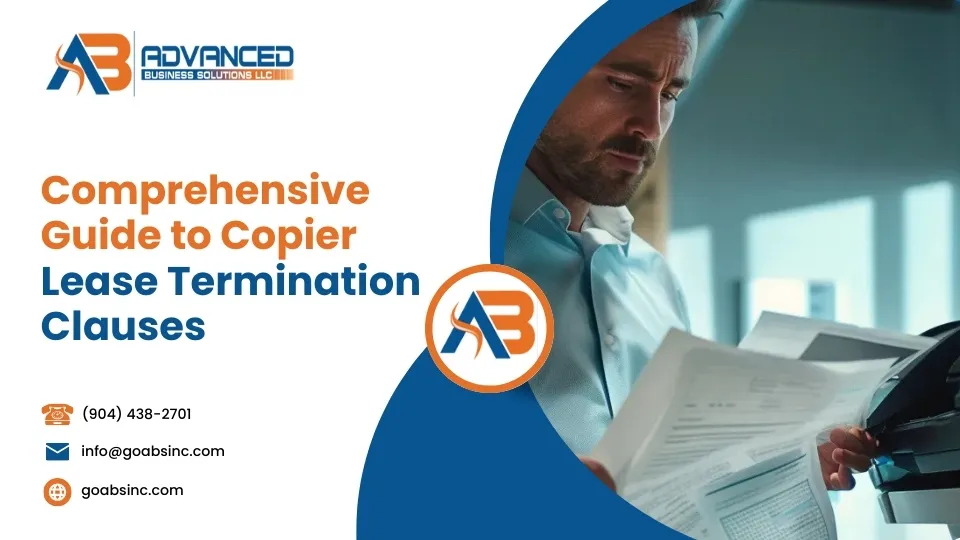
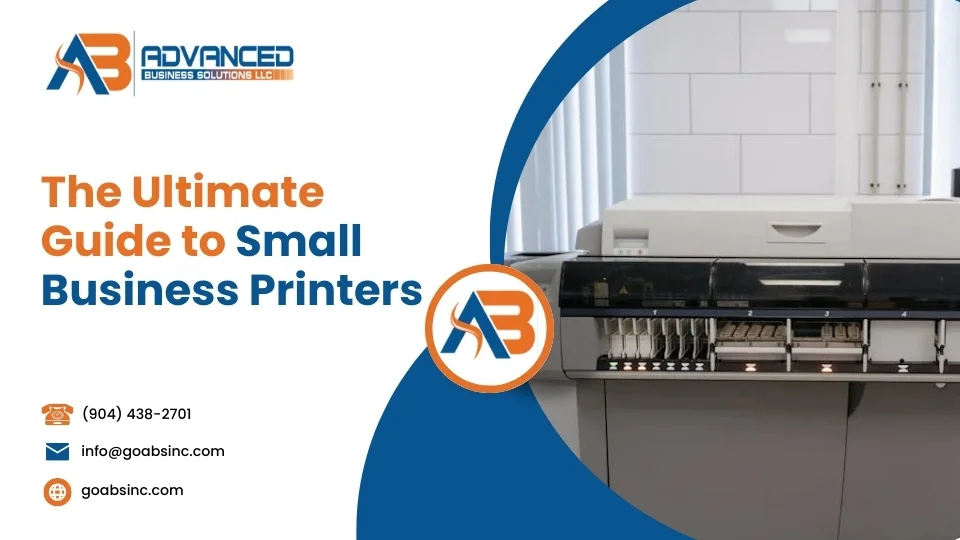
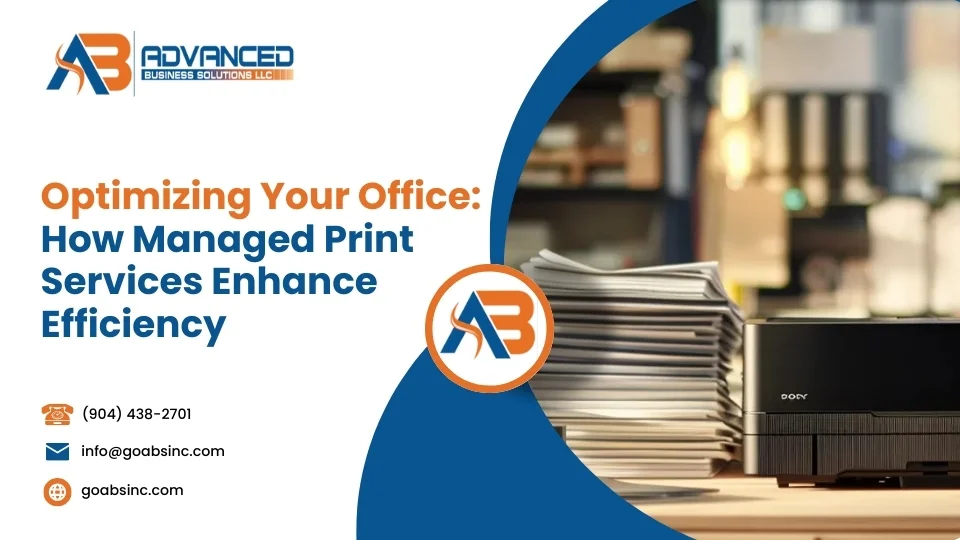
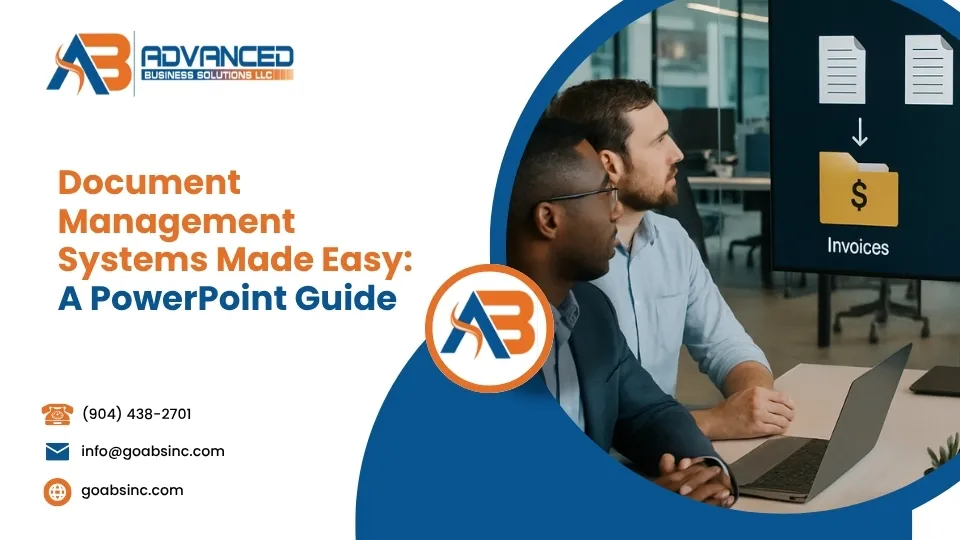

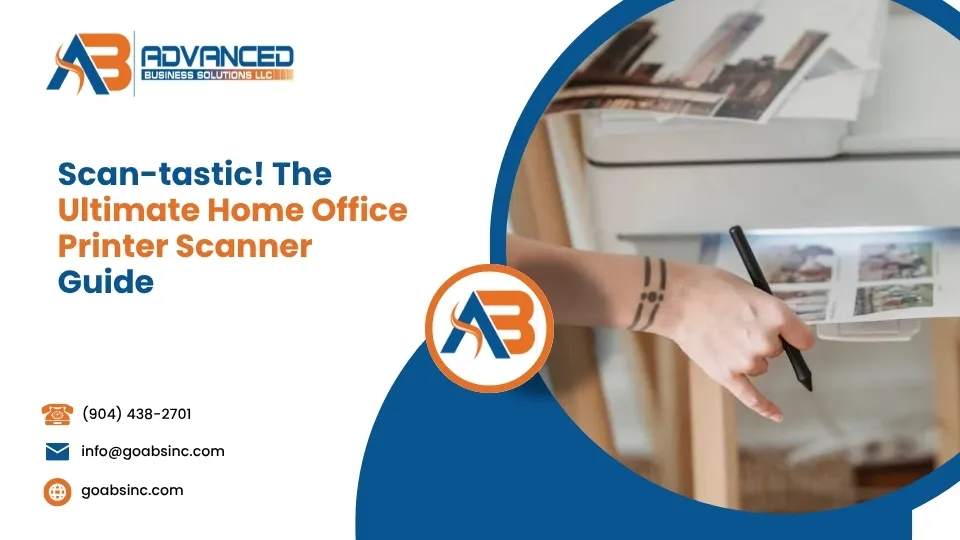
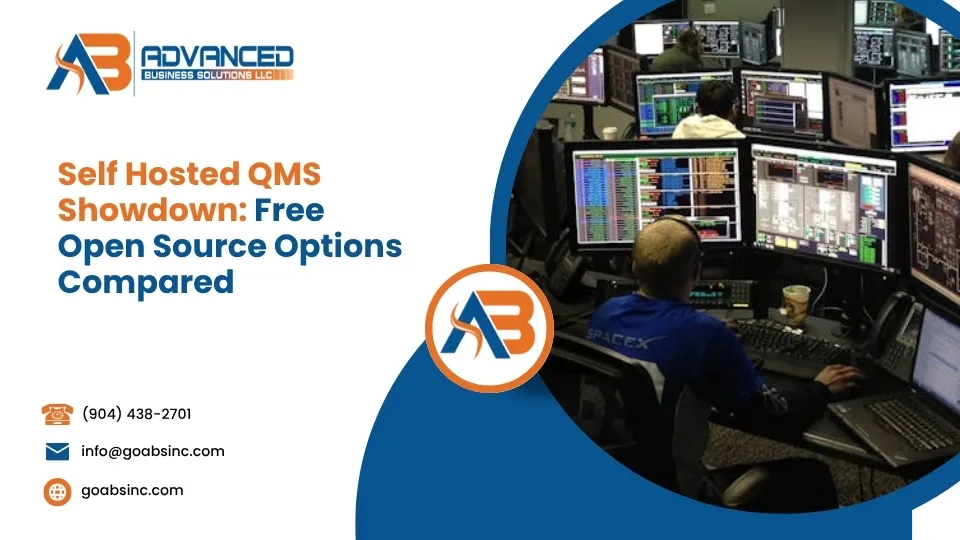
Comments are closed